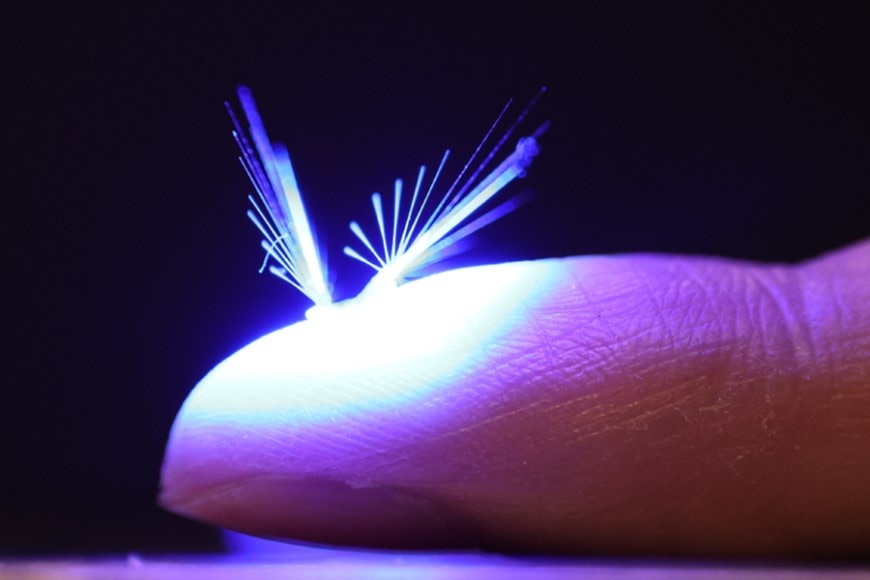Researchers in Finland have developed small, fairy-like robots that can fly, which could help to pollinate vital crops across the globe.
Created at Tampere University, these tiny robots are made of stimuli-responsive polymers, which in the past have been used as building materials in soft-bodied, remotely controlled robots.
Previous research has shown that these polymers can make robots walk, swim, or jump. This is the first time that researchers have found a way to make their stimuli-responsive robots fly.
These new "Tinkerbell" robots are so porous and small (weighing just 1.2 milligrams) that they can travel by floating through the wind. They are also light-responsive, meaning they can be controlled using light inputs.
In other words, a targeted laser could cause the robot to change shape, which would prompt it to switch direction or velocity while traveling in the wind.
"Superior to its natural counterparts, this artificial seed is equipped with a soft actuator," Hao Zeng, who is leading the Light Robots group, said in a statement. "The actuator is made of light-responsive liquid crystalline elastomer, which induces opening or closing actions of the bristles upon visible light excitation."
This new discovery could mean that millions of artificial dandelion seeds carrying pollen will one day be distributed across the globe. Using light, these robot pollinators could be steered toward any trees and plants that need to be pollinated.
Devising artificial pollinators like these could prove vital if valuable pollinators, such as bees, continue to die out across the globe.
One study found that 25% fewer species of pollinators were reported between 2006 and 2015 compared to their pre-1990s numbers. And between 2015 and 2016, a whopping 44% of managed honey bee colonies in the U.S. were lost to disease.
This loss of pollinators is largely due to human activity. Factors like habitat loss, the use of harmful pesticides in agriculture and gardens, warming temperatures, and disease are all playing a role.
The change is already having an effect on global food supplies. Of the 100 crops that provide 90% of the world's food, 70 rely heavily on pollinators. According to one study, pollinators' population decline has led to a 3-5% reduction in the fruits, vegetables, and nuts we're able to produce.
While actions like reducing the use of pesticides and increasing biodiversity help to restore natural pollinators, the robots developed by Tampere University could supplement the bees' work of pollinating the world's crops.
Having produced proof-of-concept experiments, the team is now moving on to making their pollinators more precise.
Join our free newsletter for weekly updates on the coolest innovations improving our lives and saving our planet.









